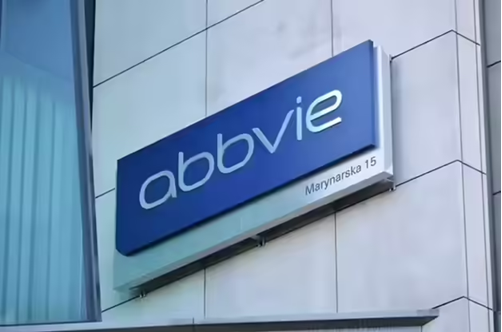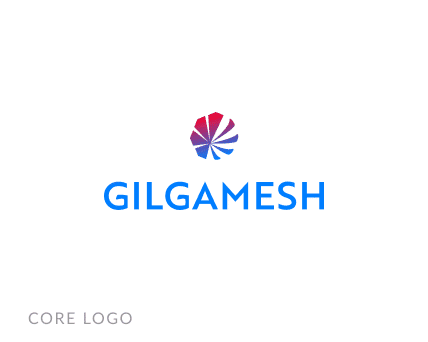预约演示
更新于:2025-12-27
Blixeprodil
更新于:2025-12-27
概要
基本信息
药物类型 小分子化药 |
别名 GM 1020、GM1020 |
作用方式 拮抗剂 |
作用机制 NMDA receptor拮抗剂(谷氨酸[NMDA]受体复合体拮抗剂) |
治疗领域 |
在研适应症 |
非在研适应症- |
非在研机构- |
权益机构- |
最高研发阶段临床2期 |
首次获批日期- |
最高研发阶段(中国)- |
特殊审评- |
登录后查看时间轴
结构/序列
分子式C13H16FNO |
InChIKeyGLHWPYBETIKGHM-CYBMUJFWSA-N |
CAS号2881017-49-6 |
关联
2
项与 Blixeprodil 相关的临床试验NCT06309277
A Two-Part Controlled Clinical Study to Evaluate Safety, Tolerability, Response, Pharmacokinetics and Pharmacodynamics of Single and Multiple Oral Doses of GM-1020 in Patients With Major Depressive Disorder
The aim of this Phase 2a study in patients with MDD is to assess safety and tolerability and preliminary antidepressant efficacy.
开始日期2024-02-01 |
NL-OMON53597
A Three-Part, Adaptive, Randomized, Double blind, Placebo Controlled First in Human Study to Evaluate Safety, Pharmacokinetics (PK) and Pharmacodynamics (PD) of Single and Multiple Ascending Oral Doses of GM-1020 and the Effect of Food on Single Dose GM-1020 in Healthy Volunteers. - SAD and MAD safety, PK and PD, PK and Food Effect of GM-1020
开始日期2022-11-15 |
100 项与 Blixeprodil 相关的临床结果
登录后查看更多信息
100 项与 Blixeprodil 相关的转化医学
登录后查看更多信息
100 项与 Blixeprodil 相关的专利(医药)
登录后查看更多信息
1
项与 Blixeprodil 相关的文献(医药)2024-05-01·Neuropsychopharmacology : official publication of the American College of Neuropsychopharmacology
GM-1020: a novel, orally bioavailable NMDA receptor antagonist with rapid and robust antidepressant-like effects at well-tolerated doses in rodents
Article
作者: Gatti, Silvia ; Klein, Adam K ; Kruegel, Andrew C ; Cunningham, Michael J ; Hulls, Sarah K ; Hughes, Zoë A ; Austin, Eric W ; Kiss, Laszlo ; Dvorak, Dino ; Papp, Mariusz ; Marek, Gerard J ; Sporn, Jonathan
Abstract:
The NMDA receptor (NMDAR) antagonist ketamine has shown great potential as a rapid-acting antidepressant; however, its use is limited by poor oral bioavailability and a side effect profile that necessitates in-clinic dosing. GM-1020 is a novel NMDAR antagonist that was developed to address these limitations of ketamine as a treatment for depression. Here, we present the preclinical characterization of GM-1020 alongside ketamine, for comparison. In vitro, we profiled GM-1020 for binding to NMDAR and functional inhibition using patch-clamp electrophysiology. In vivo, GM-1020 was assessed for antidepressant-like efficacy using the Forced Swim Test (FST) and Chronic Mild Stress (CMS), while motor side effects were assessed in spontaneous locomotor activity and on the rotarod. The pharmacokinetic properties of GM-1020 were profiled across multiple preclinical species. Electroencephalography (EEG) was performed to determine indirect target engagement and provide a potentially translational biomarker. These results demonstrate that GM-1020 is an orally bioavailable NMDAR antagonist with antidepressant-like efficacy at exposures that do not produce unwanted motor effects.
19
项与 Blixeprodil 相关的新闻(医药)2025-08-26
New York: US pharma major
AbbVie
has announced plans to acquire an investigational
major depressive disorder
(MDD) candidate from Gilgamesh Pharmaceuticals for up to $1.2 billion (~ Rs 10,400 crore).
The two companies have inked a definitive agreement under which, AbbVie will acquire Gilgamesh's experimental MDD candidate “
Bretisilocin
” for up to $1.2 billion, inclusive of an upfront payment and development milestones.
Bretisilocin
is a next-generation psychedelic compound which targets the 5-HT2A receptor, a key component of the brain’s serotonin system involved in mood regulation.
The therapy is designed to provide a more controlled, psychoactive experience, while retaining an extended therapeutic benefit. During early stage studios Bretisilocin has shown to exert a shorter duration of psychoactive experience, while retaining an extended therapeutic benefit.
"This acquisition underscores our commitment to broadening and enhancing psychiatric care by investing in novel treatment approaches with the potential to reach patients for whom other treatments have been ineffective” said Roopal Thakkar, Chief Scientific Officer, AbbVie.
Gilgamesh Pharma
had recently announced the topline results from a Phase 2a study investigating ‘Bretisilocin’ and stated to have demonstrated a -21.6 point reduction in depression symptoms from the base line in the Montgomery-Åsberg Depression Rating Scale (MADRS) —a clinical tool used to measure the severity of depressive symptoms— compared to -12.1 point change from for the low dose (1mg) at 14 days.
Notably, as part of the transaction, Gilgamesh will spin off a new entity that will operate under the name Gilgamesh Pharma Inc. to oversee the company other programs, including its oral
NMDA receptor antagonist
Blixeprodil (GM-1020), cardio-safe ibogaine analog, M1/M4 agonist program and existing collaboration with AbbVie.
While the next-generation therapies will be transferred to Gilgamesh Pharma Inc, Abbvie retains the option-to-license to advance the development of these candidates for the treatment of psychiatric disorders.
By
Online Bureau
,

临床2期临床结果并购引进/卖出
2025-08-25
Almost a month after rumours surfaced that AbbVie was weighing a $1-billion bid for Gilgamesh Pharmaceuticals, the company announced Monday it will acquire the neuroscience biotech's lead asset — the psychedelic depression candidate bretisilocin (GM-2505) — in a deal worth up to $1.2 billion.Bretisilocin is a serotonin 5-HT2A receptor agonist and 5-HT releaser currently in mid-stage development. Unlike psilocybin or LSD, which can keep patients in a psychoactive state for six to 10 hours, "bretisilocin has been shown to exert a shorter duration of psychoactive experience, while retaining an extended therapeutic benefit," the companies said in a joint release.Topline Phase IIa results suggest the drug may indeed deliver. In patients with moderate-to-severe major depressive disorder, a single 10-mg dose reduced Montgomery-Åsberg Depression Rating Scale (MADRS) scores from baseline by 21.6 points after two weeks, compared with a 12.1-point reduction in patients given a low-dose active comparator. The antidepressant effect emerged within 24 hours and was durable after just two treatment sessions, Gilgamesh reported in May. Bretisilocin was also generally well tolerated, with no serious adverse events reported.Clinicians see the drug's shorter-acting profile as a potential advantage. "This compound acts in just a couple of hours, so that would position it to really compete well against other psychedelics that are further along but longer-acting," Brian Barnett, clinical director of the psychiatric treatment resistance program at Cleveland Clinic, recently said in an interview with FirstWord. He also suggested bretisilocin could prove to be "a nice alternative" to Johnson & Johnson's Spravato (esketamine), with more durable benefit.Monday's deal includes an upfront payment and development milestones. As part of the transaction, Gilgamesh will also spin out a new entity that will operate under the name Gilgamesh Pharma to hold its employees and remaining programmes, including its oral NMDA receptor antagonist blixeprodil (GM-1020), cardio-safe ibogaine analogue (GM-3009), M1/M4 agonist programme and non-hallucinogenic neuroplastogens, already the centre of an existing $2-billion tie-up with AbbVie (see – Spotlight On: Neuroplastogens hit the mainstream in 2024. What's next for trip-less psychedelics?).
临床结果临床2期并购
2025-08-25
Brain doodle illustration, sketched colored concept about fresh ideas in human mind
iStock/
LisaAlisa_ill
The deal extends AbbVie’s commitment to the psychedelics space and depression, after emraclidine’s high-pro in schizophrenia last November.
Not only is AbbVie jumping back into depression after a stunning failure last year, but the company is doing so with an eye-catching modality: psychedelics. After working closely with Gilgamesh Pharmaceuticals for over a year, AbbVie will buy the neuroscience biotech’s lead depression candidate for $1.2 billion.
The deal was
announced
Monday morning, with AbbVie splitting the cash between an upfront payment and development milestones, which were not disclosed. The transaction will only include Gilgamesh’s lead asset, bretisilocin, which was not involved in the companies’ original May 2024 licensing partnership. The drug is being developed as a fast-acting, two-hour duration treatment option for major depressive disorder (MDD).
The remaining assets in Gilagmesh’s stable—including those in the existing AbbVie collaboration—will be spun out into a new company called Gilgamesh Pharma Inc. This new entity will hold all of Gilgamesh’s employees and programs, which include an oral NMDA receptor antagonist called blixeprodil, a cardio-safe ibogaine analog and an M1/M4 agonist program.
AbbVie will still have an option to license candidates from the new Gilgamesh entity, according to the terms of the original deal.
The deal extends AbbVie’s commitment to
the psychedelics space
, one of the only Big Pharmas in the game. The other major player is Johnson & Johnson, which owns the esketamine-based Spravato, though the company has told
BioSpace
it doesn’t consider the depression drug to be a traditional psychedelic.
AbbVie was cautious with the deal, reflecting the lower-than-expected valuation for the Gilgamesh asset, BMO Capital Markets said in a note Monday morning.
“We believe the lower deal value could reflect conservatism around psychedelic valuations in light of regulatory backdrop for compounds, making today’s deal a well-balanced risk/reward acquisition for the company,” BMO’s Evan David Seigerman and colleagues wrote.
Still, the deal reflects a vote of confidence in the psychedelics space.
“Historically, large pharma has been less active exploring psychedelic compounds due to potential regulatory concerns surrounding approval, making today’s deal more significant, starting to validate that pharma could see a therapeutic outlet for some of these drugs,” BMO’s note read.
And the deal makes sense for AbbVie, the analysts added, noting its existing neuroscience portfolio that features the MDD asset Vraylar. Others in the portfolio include Ubrelvy and Qulipta, which BMO said are under-appreciated compared to AbbVie’s headline-making immunology drugs Skyrizi and Rinvoq.
Taking on Gilgamesh’s depression asset means that AbbVie is taking another shot at the condition after the
failure of emraclidine
. That asset was picked up at the end of 2023 in the nearly $9 billion
acquisition of Cerevel Therapeutics
but ultimately failed two Phase II trials last November.
Meanwhile, a rival asset called Cobenfy from Bristol Myers Squibb’s
acquisition of Karuna Therapeutics
made its way to the market as the
first new schizophrenia treatment
in 35 years. In recent months, the drug has struggled to live up to expectations, failing a Phase III test testing it as an add-on treatment to atypical antipsychotics for schizophrenia.
AbbVie will now take over development of bretisilocin, a short-acting serotonin (5-HT)2A receptor agonist and 5-HT releaser, which is being tested in a Phase II trial for moderate-to-severe MDD. In
Phase IIa data
revealed in May, bretisilocin beat a low-dose psychoactive comparator in reducing symptoms of depression. The drug showed a rapid onset within 24 hours, and the results were durable out to day 74 without additional treatment. BMO called the data impressive.
At the time, Gerard Sanacora, professor of Psychiatry at Yale University and the director of the Yale Depression Research Program, compared the treatment to J&J’s Spravato, which achieves rapid results in the clinic.
“The treatment fits nicely in the two-hour in-clinic framework established by esketamine, but with the potential for significantly fewer annual visits,” Sanacora said in a statement included in Gilgamesh’s May 27 release.
临床2期并购临床3期临床结果引进/卖出
100 项与 Blixeprodil 相关的药物交易
登录后查看更多信息
研发状态
10 条进展最快的记录, 后查看更多信息
登录
| 适应症 | 最高研发状态 | 国家/地区 | 公司 | 日期 |
|---|---|---|---|---|
| 重度抑郁症 | 临床2期 | 英国 | 2024-02-01 |
登录后查看更多信息
临床结果
临床结果
适应症
分期
评价
查看全部结果
| 研究 | 分期 | 人群特征 | 评价人数 | 分组 | 结果 | 评价 | 发布日期 |
|---|
No Data | |||||||
登录后查看更多信息
转化医学
使用我们的转化医学数据加速您的研究。
登录
或

药物交易
使用我们的药物交易数据加速您的研究。
登录
或

核心专利
使用我们的核心专利数据促进您的研究。
登录
或

临床分析
紧跟全球注册中心的最新临床试验。
登录
或

批准
利用最新的监管批准信息加速您的研究。
登录
或

特殊审评
只需点击几下即可了解关键药物信息。
登录
或

生物医药百科问答
全新生物医药AI Agent 覆盖科研全链路,让突破性发现快人一步
立即开始免费试用!
智慧芽新药情报库是智慧芽专为生命科学人士构建的基于AI的创新药情报平台,助您全方位提升您的研发与决策效率。
立即开始数据试用!
智慧芽新药库数据也通过智慧芽数据服务平台,以API或者数据包形式对外开放,助您更加充分利用智慧芽新药情报信息。
生物序列数据库
生物药研发创新
免费使用
化学结构数据库
小分子化药研发创新
免费使用
